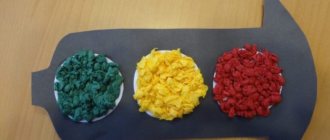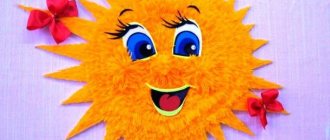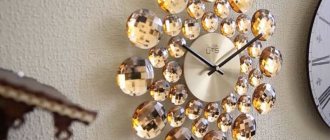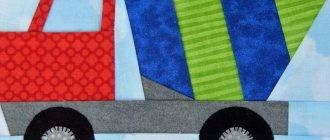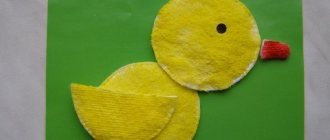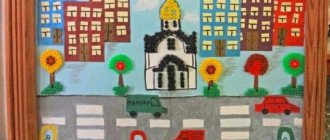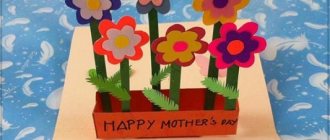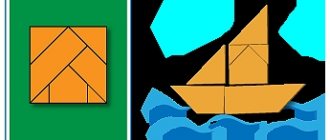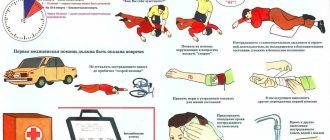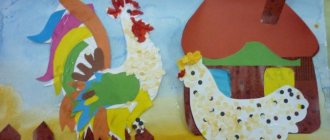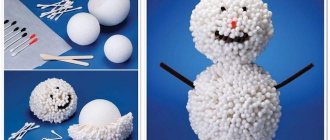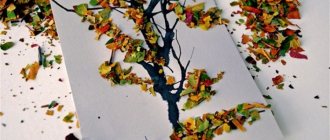The traffic light craft is interesting for children not only because you can make an interesting toy with your own hands, but also in the process of working, learn how to cross the road correctly.
Traffic lights are an integral part of life in modern cities. The more familiar a child is with the rules for crossing the roadway, the safer his path. Therefore, making a traffic light will help you remember the color you can cross the road with.
Materials from which you can make a traffic light
To make crafts, various textured materials are used. The main thing is that they are safe for children.
Use:
- cardboard;
- colored paper;
- computer disks;
- plastic bags;
- paper towel rolls;
- plastic jars and bottles;
- plasticine;
- plywood;
- yarn;
- natural material.
The great thing about the material is that it can be dyed red, yellow and green if required.
What might you need?
- Ready to use table
- Scissors,
- Glue,
- Paints,
- Plasticine,
- Additional materials.
As a rule, DIY traffic light crafts for children become one of their favorites.
There are absolutely no restrictions on your imagination, since a traffic light can be made from almost anything. The main thing is to maintain the correctness of the colors, but even here sometimes you can give free rein to little authors.
DIY flat traffic lights
Such traffic lights can be made in the form of an application that is hung on the wall. Or stick colored circles on cardboard or a box that is placed on the podium.
Younger children need help drawing the circles for the traffic lights and cutting them out evenly. School-age children can do this on their own.
Made from cardboard and colored paper
- Cut out a strip from dark cardboard.
- We glue it between two black rectangular cardboard blanks.
- On both sides of the rectangles we glue three circles of red, yellow and green.
The visual teaching aid is ready and can be taken to kindergarten or school.
From disks
In every home there are three disks that are not used for their intended purpose because they are scratched or have lost their relevance. They can be used to create a traffic light. Moreover, the shape of the disk is round and there is no need to cut such a shape from other materials.
Progress:
- Place a disk on colored paper and trace its outline.
- Cut out colorful circles.
- Stick them on disks.
- On each disc with a certain color you can draw a funny face. For example, on a red disc it will be sad because movement is prohibited. And on the yellow disk, the face takes on a serious expression, which means to prepare for the transition. On the green disk the image is smiling because movement can be made.
- The finished discs are glued in the correct order onto cardboard, plastic and wooden surfaces. You can create the most unusual designs, but the order of colors in a traffic light remains unchanged.
- You don’t have to completely cover the disk, but glue multi-colored bottle caps to the middle to create a traffic light. Or you can stick strips on the disk in the form of sun rays of different colors.
There are many options for making crafts from disks, and the main thing is to show your imagination. If you make pompoms from yarn, then they are glued on a disk instead of a nose in the middle, and eyes and a mouth are glued from paper. The result will be multi-colored clowns, each with its own facial expression corresponding to the color of the traffic light.
From colored bags
To create a traffic light from packages, you need to stock up on packages of the colors present in the traffic light.
Progress:
- Cut off the handles and bottom.
- Lay out the bag in the form of a rectangle.
- Bend it in half.
- Cut into centimeter strips up to the fold line.
- Connect the resulting parts with tape to form a ball.
- The balls can be attached in a hollow box or connected together like a snowman.
- Decorate with a cap cut out of cardboard and glue on the hands. Place the wand in one hand.
This traffic light is pleasant to the touch and looks very interesting.
RESULTS
Dear friends! Do you know the Rules of the Road, do you know why a traffic light is needed? Let's remember and repeat the traffic rules! The competition accepts works made on the theme “Fun Traffic Light”.
Send crafts, drawings, photographs, presentations, videos and other creative works on a given topic.
We will be glad if our competition helps its participants to open up and show their talents and creativity.
Rules of participation
1.A child can complete an unlimited number of works and participate in several nominations. In this case, the organizer, when filling out an application, must take into account not the number of participants, but the number of participating works from students.
2. Each work should not be added separately, but attached in one general archive.
3. Works in the appropriate categories can be performed by children, adults, or jointly - children and adults (individually or collectively).
4. Style is always at the discretion of the participant.
Detailed instructions for filling out an application are in the How to Participate section of the website.
Competition nominations
- - drawing
- — arts and crafts
- — acting skills (audio recordings, video materials of monologues, stage groups, classes, groups and readers are accepted for the competition).
- -presentation (presentations made by you that correspond to the topic are accepted for the presentation competition).
- — musical creativity (audio recordings and video materials of musical groups, dance groups, young composers and performers corresponding to the topic are accepted for the competition).
- — postcard (photos of postcards made by yourself, which will be presented to dad, grandfather, brother, uncle, etc., are accepted for the competition)
- -reading a poem
- -photo
- -dance
- -presentation
- -cartoon
- -poster
The following are allowed to participate in the competition:
- Students of institutions of any type and type.
- Pupils of any preschool institutions.
- Students of grades 1-11 of schools, lyceums, gymnasiums, colleges and any other educational institutions (without pre-selection) who have paid the registration fee.
The cost of the registration fee is formed:
- 1 participant = 1 competition = 1 nomination = 1 work
- 80 rubles - electronic version (personalized diploma)
- 80 rubles - a printed version of the diploma (sending by Russian Post is possible only with an application of 10 or more works).
How to pay for participation, see the PAYMENT page
Job requirements:
- — compliance of the content of the creative work with the stated topic
- — relevance of the competition work
- - creative individuality
- — originality of idea, innovation, creativity
- — completeness and imagery of the topic
- — quality of design and clarity of the material
- — correspondence of the creative level to the age of the author
- - degree of independence of execution
File requirement:
- — Video format with the ability to play on high quality modern digital devices: AVI, MPEG, MKV, WMV, FLV, FullHD, etc.
- — Duration no more than 5 minutes
- — Quality no lower than 360px
- — The file name must contain the title of the work.
- — Acceptable file formats: JPG, JPEG, TIFF, BMP, RAW, PNG.
- — The size of the work file should not exceed 10 MB.
- — If the file size exceeds the permissible size, the participant has the right to place in the appropriate column a link to Yandex.Disk (or others) to download the necessary files with the work.
Awards:
- Participants, without exception, will be awarded Certificates, and those who distinguished themselves at the end of the competition will be awarded Diplomas of I, II, III degrees.
- The organizers of the competition are awarded Certificates of Appreciation for the preparation of the participants.
Participation in our competitions is an opportunity to show your talents, pedagogical successes and add international diplomas to your portfolio!
Let's create together!
We can take into account the requirements for certification and evaluation activities of teachers on an individual basis so that the diploma meets the criteria at YOUR institution. If there are such requirements, write to us by email, stating them in a letter.
Volumetric traffic lights from scrap materials
If you show imagination and ingenuity, you can make not only a flat traffic light, but also a three-dimensional one. To create it we use:
- packaging boxes;
- yogurt jars;
- plasticine;
- plastic containers;
- plywood;
- yarn;
- colored paper.
From cardboard boxes
- For this craft you need to take a rectangular box.
- Trim off the top.
- Cover with black paper.
- Glue colorful circles onto paper.
- Attach a handle from a rope, threading it into the side holes that need to be pierced in the box.
Now you can play with a traffic light by moving it from place to place.
From a toilet paper roll
Don't throw away cardboard toilet paper rolls. They make great crafts:
- To work you will need three pieces. They need to be glued together to form a cylinder.
- Cover it with black paper. We glue three multi-colored circles onto it.
- Now you need to make a cylinder from two sheets of black paper, in which circles will be made the size of those glued to the traffic lights.
- When we turn the upper cylinder of black paper, the circle on the traffic light will be visible in the circle on the upper cylinder.
- This way we will get a moving traffic light.
Made from plasticine
Little children can make a traffic light out of plasticine. They will like this kind of work because it is not difficult at all. You need to make circles from different colors and attach them to cardboard.
Older children can make a more complex design. To do this, you need to mold a traffic light structure from plasticine and attach multi-colored balls to it. You can decorate the traffic light with visors made of plasticine or colored paper.
No matter what kind of traffic light you get, it is important to tell children the rules of the road so that they remember what color they can cross the road with. And for this, not only crafts are important, but also poems and stories that talk about traffic lights.
From a plastic bottle
For this craft, it is advisable to take a rectangular bottle, then the traffic light will turn out not only three-dimensional, but also with circles on four sides. The bottle should be painted a dark color. The traffic light colors are glued onto it on all four sides.
If you need support for the craft, then insert a stick into the neck and attach the bottle to it. On each side of the bottle you can highlight the light that signals with brighter colors. If you show your imagination, you can make a real traffic controller with a cap on his head and a baton in his hand.
From plywood
Children and their parents will be able to master this craft. After all, you need to cut parts out of plywood and connect them with nails:
- A rectangular frame is made.
- Circles are drawn on each side and painted with paint of the appropriate color.
- You can use LED bulbs, then you need to cut out circles in the plywood and stick colored mica onto the holes.
- When the light turns on, the traffic light will look like a real one.
Instead of plywood, you can use fiberboard.
Knitted
Girls can be asked to knit or crochet a traffic light. If you have the skills to work with beads, you can make a teaching design out of it. A traffic light made of yarn can be voluminous in the form of a rectangular pillow or flat, like a napkin.
The main thing in the work is to show maximum imagination, and then the craft will turn out original and original. In knitting, you do not need to use complex patterns, but simply knit the design with multi-colored circles using knit or purl stitches.
Origami
If you are familiar with the origami technique, then there will be no difficulties in making a traffic light. The main thing is to find a material for the base on which the parts will be glued. They use both paper base and plastic and wood.
The origami technique itself is not complicated, but you need to learn how to fold the parts correctly. And multi-colored circles are made from them and glued to a selected base.
Physical education in the senior group on traffic rules “Journey to the Land of Traffic Lights”
Warm-up game “Lucky Chance”
(children must answer the questions quickly):
— What is the name of the part of the road along which vehicles move? ( Roadway.)
—An animal whose name denotes a section of the roadway? (Zebra.)
— What is the name of the sounding instrument of a traffic police officer? ( Whistle.)
— What is the name of the silent tool of a traffic police officer? ( Rod.)
— At what traffic light should you not cross the road? ( Red)
— Name the part of the road along which pedestrians walk? ( Sidewalk
.)
— What is the name of the place where passengers wait for transport. ( Stop
.)
— At what traffic light can you cross the road (Green)
Leading:
Today we have 2 teams meeting that will show their knowledge of traffic rules. Guys, but in order for you to travel around the country of Traffic Lights, you need to pass the tests.
The game " Traffic Light "
.
When the color red is shown, children stand still. When yellow is shown, they clap their hands; when green, they stomp their feet.
1 competition “Pass the Baton”
(Team captains, at the teacher’s signal, run to the identifier-cone, run around it, return to their team and pass the baton to the next one).
2nd competition “Cautious Driver”
(the first participants have a steering wheel in their hands, and a bag of sand on their heads. At the teacher’s signal, the team captains must quickly walk to the identifier-cone, return, pass the steering wheel to another, without dropping the bag of sand on their heads)
3rd competition “Cheerful Taxi Driver”
(Teams line up behind the starting line in a column one at a time. The first participant, the captain, has a hoop in his hands. At the teacher’s signal, the team captains, putting on the hoop, run around the identifier-cone, grab the first player in the hoop and together with him run to the identifier-cone , the captain leaves the passenger there and runs after the next one. The relay ends when all team members have traveled in the “taxi”)
4th competition “Pedestrian road”
(each child is given a strip of white paper; at the teacher’s signal, the child must run to the identifier-cone, put down his piece of paper and stand on it, then the next child runs, and thus a pedestrian crossing is built)
5th competition “ABC of Road Signs”
(the teacher shows traffic signs, the teams take turns guessing and calling them)
Presenter:
Well done, guys, we made sure that you know the rules of the road, but most importantly, don’t forget to follow them.
Traffic rules are very important .
Every adult and child should know them. Do not violate them, and then you will not have accidents on the roads.
In kindergarten we will constantly learn something new about the rules of the road. And our journey around the “Traffic Light” country is coming to an end.
Original traffic light ideas
To make an original traffic light, it can be made from threads:
- The threads are wound around a balloon coated with glue.
- When the threads dry on the ball, it is deflated and a ball of threads is obtained.
- Three balls are glued together to make a snowman.
- In place of the buttons, multi-colored circles made of paper or bottle caps are glued. The top ball is the head of a snowman, acting as a traffic light. You can put a cap made of paper on it and glue on eyes, a nose and a mouth.
- Ping-pong balls can also be turned into traffic lights if you paint them in different colors and glue them together. A cap is put on the top ball.
- Glue eyes and a mouth on each ball.
- The expression on the face changes depending on the color of the ball.
Colors in the shape of a dog or cat's face
- Cut out the base for the traffic light from black cardboard.
- We cut out circles from white paper in order to stick the faces of a cat or dog on them.
- We glue the circles onto a black blank.
- We make animal faces from a square sheet of colored paper. To do this, bend the sheet in the middle twice to get a triangle. The edges are folded to form ears.
- We bend the bottom of the workpiece into the middle to form a muzzle. Glue eyes from white paper and draw pupils. Using a marker, draw a mouth and nose, mustache and eyebrows. But you need to draw different facial expressions in animals. If the dog or cat is red, then they must be angry. The yellow animal has a neutral facial expression. And green is fun.
- Glue the faces onto the white circles.
Important! For the dog, the front side obtained by bending the triangle is used, and for the cat, the wrong side is used.
Using quilling technique
The quilling technique itself is simple, but you need to tell and show children how curls are made.
To do this, you need to cut colored paper into strips 1 cm wide and wrap them as tightly as possible around a pencil, and glue the edge to the spiral.
When the required number of curls is ready, you can glue them to the created template.
The shape of the windows for light in traffic lights can be different. But it needs to be completely filled with glued parts.
Important! The main criterion in creating a traffic light craft is that the colors on it should be in the same order as on a real traffic light. While the children are doing the craft, they must remember the exact location of the colors of the traffic lights and know which color they can cross the road with.
